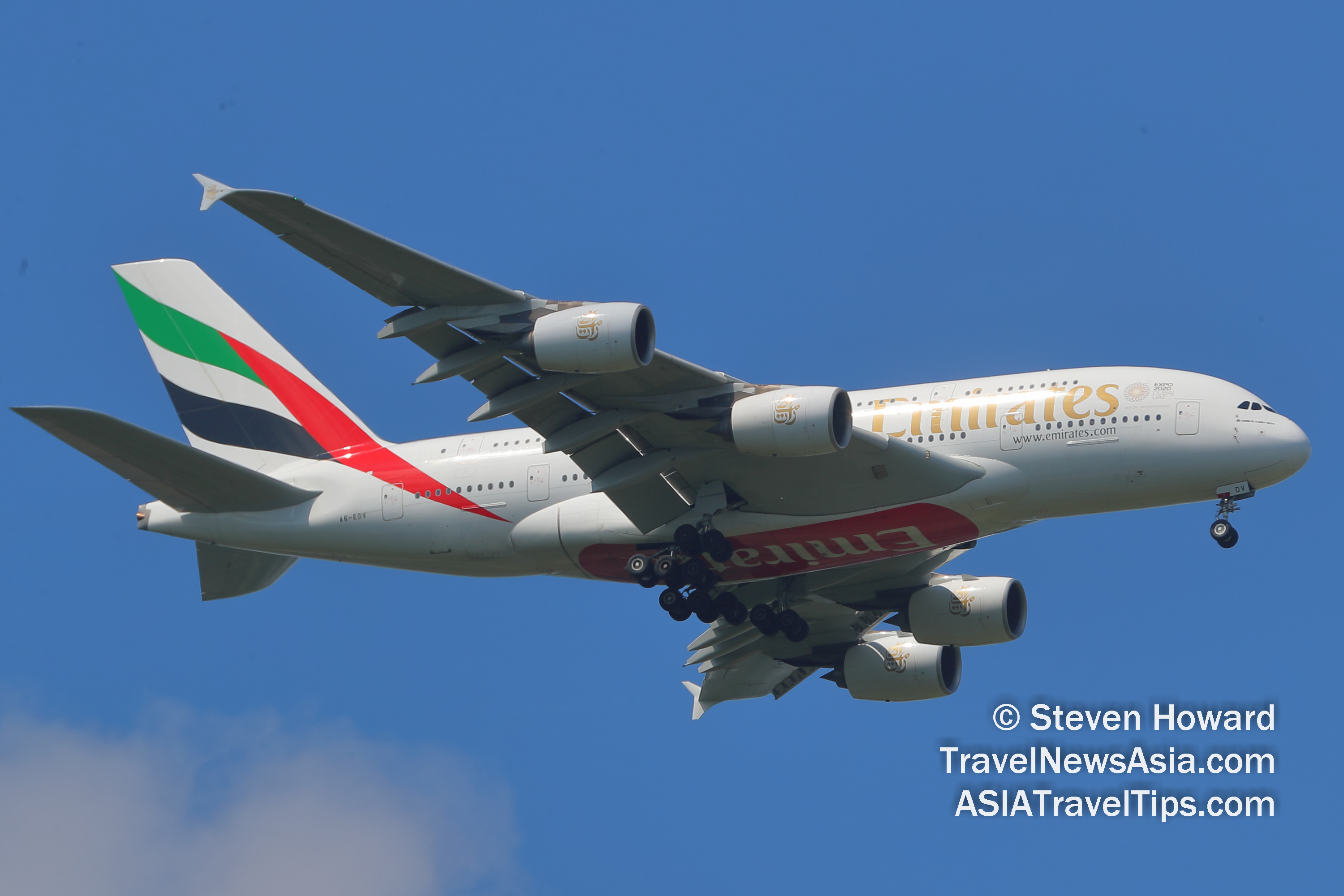|
UPDATE: Since the below
story was published, the
Government of the UAE, which is based in
the capital Abu Dhabi,
has announced that ALL passenger flights to and from the United Arab
Emirates have been suspended for two weeks from 25 March 2020. //
END UPDATE.
Emirates deleted a statement issued
on Sunday saying that it was cancelling all its passenger flights.
The airline has since confirmed that while it is not cancelling
all passenger flights, it will have temporarily suspended
most of them by 25 March 2020.
Emirates will continue to operate passenger and cargo flights to the following
countries and territories until further notice, and as long as borders
remain open and there is demand: Australia, Canada, Hong Kong,
Japan, Malaysia, Philippines, Singapore, South Africa, South
Korea, Switzerland, Thailand, the UK and USA.

HH Sheikh Ahmed bin Saeed Al Maktoum, Chairman and
Chief Executive of Emirates Group said, �Until January 2020, the Emirates Group was doing well
against our current financial year targets. But COVID19 has
brought all that to a sudden and painful halt over the past 6
weeks ... As a global network airline, we find ourselves in
a situation where we cannot viably operate passenger services
until countries re-open their borders, and travel confidence
returns. By Wednesday, 25 March, although we will still operate
cargo flights which remain busy, Emirates will have temporarily
suspended most of its passenger operations. We continue to watch
the situation closely, and as soon as things allow, we will
reinstate our services."
The
Emirates Group has also undertaken a series of measures to contain
costs, as the outlook for travel demand remains weak across
markets in the short to medium term. This includes:
- Postponing
or cancelling discretionary expenditure;
- A freeze on all
non-essential recruitment and consultancy work;
- Working with
suppliers to find cost savings and efficiency;
- Encouraging
employees to take paid or unpaid leave in light of reduced flying
capacity; and
- A temporary reduction of basic salary for the majority
of Emirates Group employees for three months, ranging from 25% to 50%. Employees will continue to be paid their other allowances
during this time. Junior level employees will be exempt from basic
salary reduction.
On the decision to reduce basic salary, Sheikh
Ahmed said, �Rather than ask employees to leave the business, we
chose to implement a temporary basic salary cut as we want to
protect our workforce and keep our talented and skilled people, as
much as possible. We want to avoid cutting jobs. When demand picks
up again, we also want to be able to quickly ramp up and resume
services for our customers.�
The company has strongly
discouraged its employees from non-essential travel, implemented
work from home policies for all employees where operationally
feasible, enhanced cleaning and disinfection protocols at its
facilities, introduced temperature screening at its key office
entry points, and launched internal educational campaigns on hand
hygiene and health practices to reduce risk of COVID19.
Sheikh Ahmed said, �These
are unprecedented times for the airline and travel industry, but
we will get through it. Our business is taking a hit, but what
matters in the long run is that we do the right thing for our
customers, our employees, and the communities we serve. With the
support and unity that we have seen from our employees, partners,
customers, and other stakeholders, I�m confident that Emirates can
tackle this challenge and come out stronger.�
With many of its airline customers dramatically reducing flights
or ceasing services altogether, dnata has also significantly
reduced its operations, including temporarily shutting some
offices across its international network.
See latest
Travel News,
Interviews,
Podcasts
and other
news regarding:
Emirates,
COVID19.
|
Headlines: |
|
|
